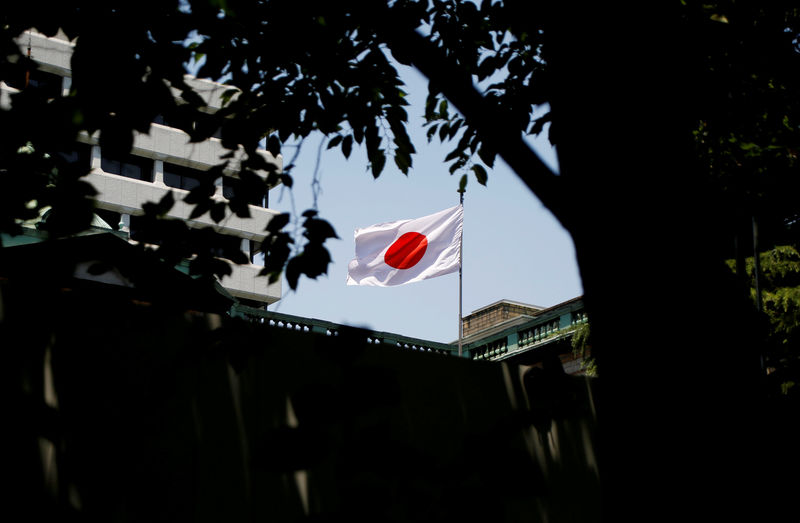By Tetsushi Kajimoto
TOKYO (Reuters) - A vast majority of Japanese firms do not want any further radical monetary easing, even though they believe the central bank's inflation goal will either take more than three years to achieve or is an impossible target, a Reuters poll showed.
(Graphic - BOJ inflation target seen a tall order click http://tmsnrt.rs/2fXQWNZ)
Deflation - where consumers believe declining prices are here to stay, restraining their spending - has hobbled Japan's economy for nearly two decades, bedeviling policymakers despite drastic measures aimed at engineering a sustainable recovery.
The results of the Reuters Corporate Survey underscore the view that authorities may not have the means to bring about an escape to deflation, with respondents noting it has become too entrenched and that the mindset of a rapidly aging but mostly middle-class population worried about pensions hinders any exit.
"Given that Japanese people are generally satisfied with the material goods they have, we have no choice but cut prices to sell more goods," a manager at an electrical machinery maker wrote in the survey.
"This trend needs to wane in order to beat deflation, but it's impossible as long as people are satisfied materially."
Despite the introduction of negative interest rates and a new approach that seeks to control the yields of government bonds, the central bank just last month delayed for a sixth time its target for reaching 2 percent inflation - this time not until the fiscal year ending March 2020.
Even so, two-thirds of respondents in the Aug. 1-16 survey saw the inflation goal as unrealistic, with 37 percent saying the target would take more than three years to achieve and 31 percent saying it was not feasible at all.
Compared to October when the same question was asked in the monthly survey, the number of firms believing it was impossible saw a 5 percentage point uptick although the number saying it was achievable within three years also saw a 5 percentage point rise.
Pessimism about the inflation goal notwithstanding, only 14 percent of firms want the Bank of Japan to go further with monetary easing.
Forty-six percent want it to stand pat with current policy while 40 percent said they would prefer that the central bank sought some sort of exit from its ultra-easy stance.
"Under the current circumstances where effective demand is declining, pursuing an ultra-easy monetary policy including negative interest rates hardly produces positive effects. Instead it causes side effects to materialise," wrote a manager at another electrical machinery maker.
Potential side effects could include the encouragement of speculative moves in financial markets that cause bubbles.
Firms were split when asked about their overall satisfaction with the central bank's policies to date, with 52 percent of saying they were satisfied and remainder saying they were unhappy.
On the 2 percent inflation goal itself, 53 percent said it should be maintained, while 20 percent believed it should be lowered and 24 percent said it should be ditched altogether.
Further highlighting the struggle with deflation, the survey showed three-quarters of firms had no plans to lift prices of their main goods and services this financial year.
That comes despite two-thirds saying their labor costs rose in the past year. Of those, 60 percent said labor costs had risen 1-5 percent, while 5 percent said they had climbed 6-10 percent.
When asked about how they planned to cope with higher labor costs, the most popular option - picked by 42 percent of firms - was "doing nothing in particular" - a choice that could squeeze profits.
Thirty percent said they planned to invest in labor-saving technologies, and 27 percent said they would review their corporate structure and employee training. Only 15 percent opted for price hikes of their goods and services. Respondents were allowed multiple responses to the question.

The survey, conducted for Reuters by Nikkei Research, polled 548 big and mid-sized firms that reply on condition of anonymity. Some 244-250 companies answered questions about BOJ policy.